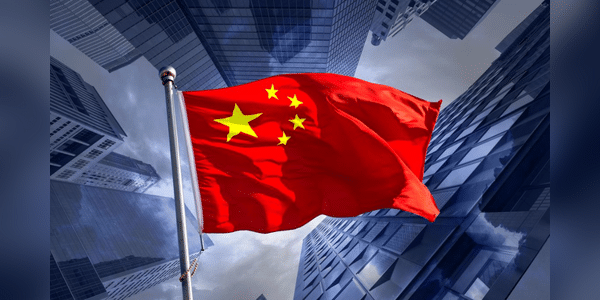China has abandoned its zero Covid policy. What will the economy look like in 2023? That is a question that has been plaguing many investors who invest in local stocks. Will we finally see an improvement or is the worst yet to come?

As China moves ever closer to fully recovering from three years of government-imposed Covid isolation and reintegrating with the world, economic expectations are high. But will they be met?
Beijing's recent departure from its strict zero covid strategy, which has long stifled businesses, is expected to add vitality to the world's second-largest economy next year.
Covid lockdowns and border restrictions have left China out of sync with the rest of the world, disrupting supply chains and damaging the flow of trade and investment, which does not bode well for companies outside China that depend on China or have factories there directly.
With the global economy facing significant challenges today, including expensive energy, slowing growth and high inflation, China…
very nice post
NICE POST THANKS!
https://communityin.oppo.com/thread/1257017037646725120https://communityin.oppo.com/thread/1257019883783716870https://communityin.oppo.com/thread/1257019890276499461https://communityin.oppo.com/thread/1257019896350113793https://communityin.oppo.com/thread/1257019901584605185https://communityin.oppo.com/thread/1257027661189349382https://communityin.oppo.com/thread/1257028217236881415https://communityin.oppo.com/thread/1257029618385813506https://communityin.oppo.com/user/1257016204397903876
https://communityin.oppo.com/thread/1257024250809155591https://communityin.oppo.com/thread/1257024355155050505https://communityin.oppo.com/thread/1257024863395905541https://communityin.oppo.com/thread/1257025179948417025https://communityin.oppo.com/thread/1257025538007760900https://communityin.oppo.com/thread/1257029650715508742https://communityin.oppo.com/thread/1257029703454949378
https://bulios.com/status/83355-avatar-2-the-way-of-water-2023-fullmovie-online-streaming-for-free-at-homehttps://bulios.com/status/83356-avatar-2-the-way-of-water-2022-yts-torrent-download-yify-movieshttps://bulios.com/status/83357-avatar-2-the-way-of-water-2022-fullmovie-free-online-on-123movieshttps://bulios.com/status/83358-watch-avatar-2-the-way-of-water-2022-fullmovie-free-online-on-123movieshttps://bulios.com/status/83354-download-avatar-2-the-way-of-water-2022-full-movie-download-free-720p-480p-and-1080p
https://bulios.com/status/83359-watch-m3gan-2022-fullmovie-free-online-on-123movieshttps://bulios.com/status/83360-m3gan-2022-yts-torrent-download-yify-moviehttps://bulios.com/status/83361-m3gan-2023-fullmovie-online-streaming-for-free-at-homehttps://bulios.com/status/83362-m3gan-2022-fullmovie-free-online-on-123movieshttps://bulios.com/status/83363-download-m3gan-2022-full-movie-download-free-720p-480p-and-1080p
https://bulios.com/status/83364-the-legend-of-maula-jatt-2022-yts-torrent-download-yify-moviehttps://bulios.com/status/83365-watch-the-legend-of-maula-jatt-2022-fullmovie-free-online-on-123movieshttps://bulios.com/status/83366-the-legend-of-maula-jatt-2023-fullmovie-online-streaming-for-free-at-homehttps://bulios.com/status/83367-the-legend-of-maula-jatt-2022-fullmovie-free-online-on-123movieshttps://bulios.com/status/83368-official-watch-the-legend-of-maula-jatt-full-movies-online-for-free
https://bulios.com/status/83369-babylon-2022-yts-torrent-download-yify-moviehttps://bulios.com/status/83370-watch-babylon-2022-fullmovie-free-online-on-123movieshttps://bulios.com/status/83371-babylon-2023-fullmovie-online-streaming-for-free-at-homehttps://bulios.com/status/83372-babylon-2022-fullmovie-free-online-on-123movieshttps://bulios.com/status/83373-download-babylon-2022-full-movie-torrent-download-free-720p-480p-and-1080p
https://bulios.com/status/83374-download-pathaan-2022-full-movie-torrent-download-free-720p-480p-and-1080phttps://bulios.com/status/83375-pathaan-2022-fullmovie-free-online-on-123movieshttps://bulios.com/status/83376-pathaan-2022-yts-torrent-download-yify-movieshttps://bulios.com/status/83377-pathaan-2023-fullmovie-online-streaming-for-free-at-homehttps://bulios.com/status/83378-watch-pathaan-2022-fullmovie-free-online-on-123movies
https://events.ydr.com/event/582f22dd5cde86196591ccd7379b3f2ahttps://events.ydr.com/event/573341f4113336a527af765f08463ebehttps://events.ydr.com/event/356d50ea9c09dff5d88c6c6fdefa586chttps://events.ydr.com/event/c066c2529f223ea4cff6f63314f78ee5https://events.ydr.com/event/0865b749a930290be16a9ff1cf85c69bhttps://events.ydr.com/event/f31348ee5633c663265b8816351a5489https://events.ydr.com/event/69b5a43617fb3a889827b440a4d047bbhttps://events.ydr.com/event/72d1ef690f0d0b66a35aa7b45774367chttps://events.ydr.com/event/5977affb36183b91f68bfb51b84b81dchttps://events.ydr.com/event/52ebad4abd13a616d6f06ea30324bf6b
https://communityin.oppo.com/thread/1257102198744809477https://communityin.oppo.com/thread/1257103344284467203https://communityin.oppo.com/thread/1257103372436635653https://communityin.oppo.com/thread/1257103395740188676https://communityin.oppo.com/thread/1257103417709953026
https://communityin.oppo.com/thread/1257033504483966982https://communityin.oppo.com/thread/1257033538994700292https://communityin.oppo.com/thread/1257033611170545669https://communityin.oppo.com/thread/1257033634935472129https://communityin.oppo.com/thread/1257033653390409734
wow, amazing post
Start posting, ask questions, discuss. Quality posts will be displayed on the main page!
Start posting, ask questions, discuss. Quality posts will be displayed on the main page!
yes nice
But will they be met?
How to quickly learn forex??
wrote Greg Bassuk